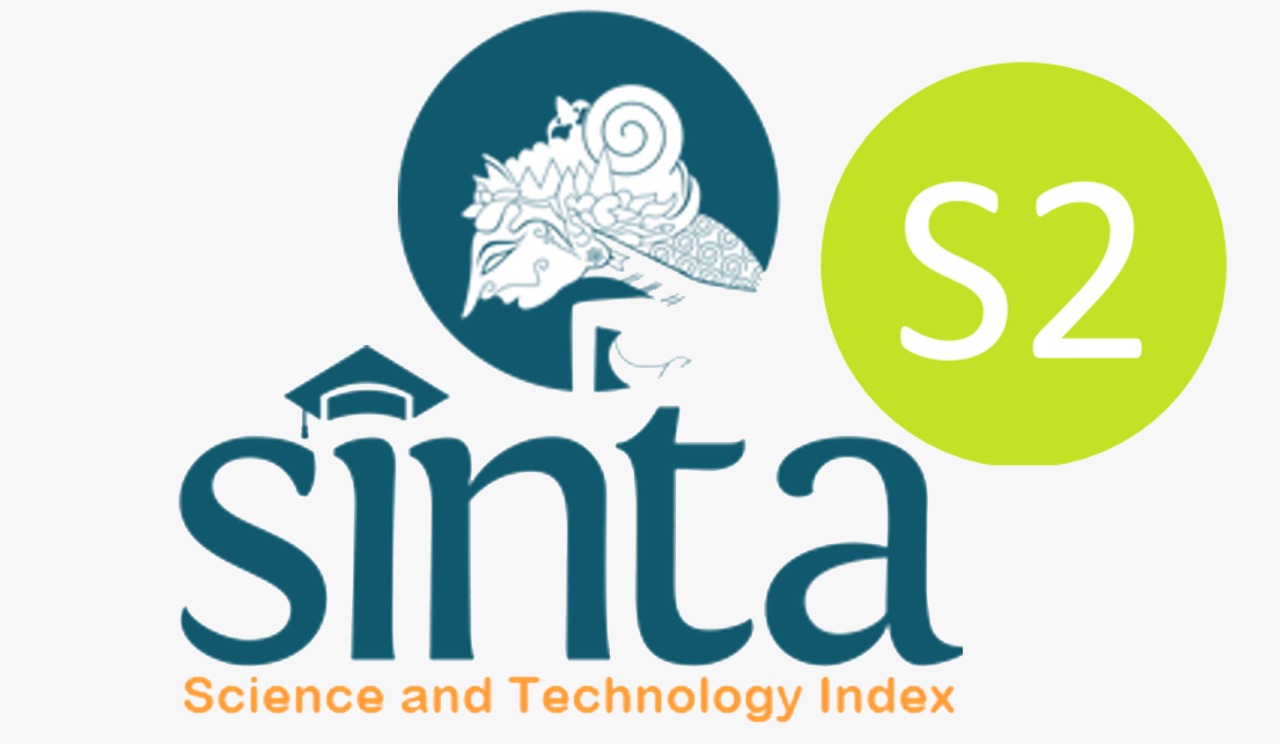TRANSFORMATIONAL LEADERSHIP AND WORK ENGAGEMENT: MEDIATING ROLE OF PSYCHOLOGICAL EMPOWERMENT
Downloads
Introduction: Work engagement has gained significant attention over the past two decades, particularly within the evolving business environment of the 21st century. This research aims to examine the impact of transformational leadership on work engagement, with psychological empowerment as the mediating factor.
Methods: This research is a quantitative study using primary data obtained through a questionnaire survey of employees in one of the Indonesian private companies active in the field of distribution of biotechnology research laboratory equipment. The measurement is done using the Likert Scale and data analysis is done with the help of the PLS-SEM tool.
Results: The research findings indicate that transformational leadership positively influences work engagement, with psychological empowerment mediating the relationship between transformational leadership and work engagement. These findings suggest that leaders who adopt transformational leadership styles can enhance work engagement through psychological empowerment.
Conclusion and suggestion: This research provides valuable insights for organizations that want to enhance the work engagement of their employees, especially in situations of organizational restructuring. In addition, the study also emphasizes the importance of job resources in helping to create a working environment that supports high work engagement.
Amor, A. M., Vazquez, J. P., & Faina, J. A. (2020). Transformational leadership and work engagement: Exploring the mediating role of structural empowerment. . European Management Journal, 169-178.
Avolio, B. J., & Bass, B. M. (1995). Individual consideration viewed at multiple levels of analysis: A multi-level framework for examining the diffusion of transformational leadership. The Leadership Quarterly, 199-218.
Avolio, B. J., Zhu, W., Koh, W., & Bhatia, P. (2004). Transformational leadership and organizational commitment: Mediating role of psychological empowerment and moderating role of structural distance. Journal of Organizational Behavior, 951-968.
Baker, A. B., Demerouti, E., & Verbeke, W. (2004). Using The Job Demands Resources Model To Predict Burnout And Performances. Human Resource Management, 83-104.
Bakker, A. B., & Demerouti, E. (2008). Towards a model of work engagement. Career Development International, 209-223.
Baron, R. M., & Kenny, D. A. (1986). The Moderator-Mediator Variable Distinction in Social Psychological Research. Conceptual, Strategic, and Statistical Considerations. Journal of Personality and Social Psychology, 1173-1182.
Breevart, K., Bakker, A., Hetland, J., Demerouti, E., Olsen, O. K., & Espevik, R. (2014). Daily transactional and transformational leadership and daily employee engagement. The British Psychological Society, 138-157.
Cascio, W. F., & Montealegre, R. (2016). How Technology Is Changing Work and Organizations. Annual Review of Organizational Psychology and Organizational Behavior, 30.
Christian, M. S. (2011). Work engagement: A quantitative review and test of its relations with task and contextual performance. Personnel Psychology, 89-136.
Chuang, C.-H., Chen, S.-j., & Chuang, C.-W. (2012). Human resource management practices and organizational social capital: The role of industrial characteristics. Journal of Business Research, 678-687.
C.R. Fadhilaini, Tjahjono, H.K. & Susanto. (2021). Improving employee engagement of muhammadiyah teachers with organizational trust, distributive justice, and psychological empowerment. The Winners. 22(2), 113-122.
Fredrickson, B. L. (2001). The Role of Positive Emotions in Positive Psychology. American Psychologist, 532-550.
Ghadi, M. Y., Fernando, M., & Caputi, P. (2013). Transformational leadership and work engagement: The mediating effect of meaning in work. Leadership & Organization Development Journal, 532-550.
Hakanen, J.J. & Roodt, G. (2010). Using the job demands-resources model to predict engagement: Analysing a conceptual model. In A.B. Bakker & M.P. Leiter (eds.) Work engagement: A Handbook of Essential Theory and Research (pp. 85 – 101). New York: Psychology Press.
Halbesleben, J. R. (2010). A meta-analysis of work engagement: Relationships with burnout, demands, resources, and consequences. In A. B.Baker, & M. P. Leiter, Work Engagement: A Handbook of Essential Theory and Research (pp. 102-117). New York: Psychology Press.
Jia-ni, X., De-hua, Y., & Jian-gang, L. (2012). The mediating effects of psychological empowerment on leadership style and employee satisfaction in hospital. International Conference on Management Science & Engineering, (pp. 20-22). Dallas.
Joseph F. Hair, J., Hult, G. M., Ringle, C. M., & Sarstedt, M. (2017). A primer on partial least square structural equation modelling (PLS-EM) (2nd ed.). Los Angeles: Sage.
Kinicki, A., & Fugate, M. (2018). Organizational Behavior: A Practical, Problem-Solving Approach. New York: Mc Graw Hill Education.
Knippenberg, D. v., & Sitkin, S. B. (2013). A Critical Assessment of Charismatic-Transformational Leadership Research: Back to the Drawing Board? . The Academy of Management Annals, 1-60.
Lee, M., & Koh, J. (2001). Is empowerment a new concept? Human Resource Management, 684-695.
Leiter, M. P., & Bakker, A. B. (2010). Work Engagement: Introduction. In A. B. Baker, & M. P. Leiter, Work Engagement: A Handbook of Essential Theory and Research (pp. 1-9). New York: Psychology Press.
Luciano, M., & Mathieu, J. E. (2014). Leading multiple teams: Average and relative external leadership influences on team empowerment and effectiveness. Journal of Applied Psychology, 322-331.
Meyerson, S. L., & Kline, T. J. (2008). Psychological and environmental empowerment: Antecedents and consequences. Leadership and Organization Development Journal, 444-460.
Mostafa, A. M. (2019). Transformational leadership and restaurant employees customer-oriented behaviours: The mediating role of organizational social capital and work engagement. International Journal of Contemporary Hospitality Management, 1166-1182.
Nguyen, D. L. (2020). Mediating the role of psychological empowerment between transformational leadership and employee engagement. Management Science Letters, 4039-4044.
Palupi, M. (2020). Efforts to Improve Employee Creativity Through Transformational Leadership. Jurnal Manajemen Bisnis, 224-232.
Rafferty, A. E., & Griffin, M. A. (2004). Dimensions of transformational leadership: Conceptual and empirical extensions. The Leadership Quarterly, 329-354.
Schaufeli, W. B., & Bakker, A. B. (2004). Job demands, job resources, and their relationship with burnout and engagement: A multi-sample study. Journal of Organizational Behavior, 293-315.
Schaufeli, W. B., & Bakker, A. B. (2010). Defining and measuring work engagement: Bringing clarity to the concept. In A. B.Bakker, & M. P. Leiter, In Work engagement: a handbook of essential theory and research (pp. 10-24). New York: Psychology Press.
Schaufeli, W. B., Salanova, M., Roma, V. G., & Bakker, A. B. (2002). The Measurement of Engagement and Burnout: A Two Sample Confirmatory Factor Analytic Approach. Journal of Happiness Studies, 71-92.
Schinder, P. S. (2019). Business Research Methods. McGraw-Hill Education.
Spreitzer, G. M. (1995). Psychological Empowerment In The Workplace: Dimensions, Measurement, And Validation. Academy of Management Journal, 1442-1465.
Sweetman, D., & Luthans, F. (2010). The Power of positive psychology: Psychological capital and work engagement. In A. B. P.Leiter, Work Engagement: A Handbook of Essential Theory and Research (pp. 54-68). New York: Psychology Press.
Tjahjono, H. K., Prasetyo, F., & Palupi, M. (2018). Kepemimpinan Transformasional Pada Organizational Citizenship Behavior Dan Komitmen Afektif. Jurnal Manajemen Dan Pemasaran Jasa, 217-232.
Tjahjono, H.K. (2015) Metode Penelitian Bisnis. VSM MM UMY
To, M. L., Fisher, C. D., & Ashkanasy, N. M. (2015). Unleashing angst: Negative mood, learning goal orientation, psychological empowerment and creative behaviou. Human Realtions, 1-22.
Wagimo, & Ancok, D. (2015). Hubungan Kepemimpinan Transformasional dan Transaksional dengan Motivasi Bawahan di Militer. Jurnal Psikologi, 112-127.
Yukl, G. (2013). Leadership in Organization. New York: Pearson.
Zhao, X., Chen, Q., & Lynch, J. G. (2010). Reconsidering Baron and Kenny: Myths and truths about mediation analysis. Journal of Consumer Research, 197-206.
Zhu, W., Avolio, B. J., & Walumba, F. O. (2009). Moderating Role of Follower Characteristics With Transformational Leadership and Follower Work Engagement. Group & Organization Management, 590-619.
Copyright (c) 2023 Dyah Ayu Dina, Heru Kurnianto Tjahjono

This work is licensed under a Creative Commons Attribution-ShareAlike 4.0 International License.
Authors who publish with Jurnal Ekonomi dan Bisnis Airlangga agree to the following terms:The journal allows the author to hold the copyright of the article without restrictions.
The journal allows the author(s) to retain publishing rights without restrictions
The legal formal aspect of journal publication accessibility refers to Creative Commons Attribution Share-Alike (CC BY-SA).
Jurnal Ekonomi dan Bisnis Airlangga (JEBA) is licensed under a Creative Commons Attribution-ShareAlike 4.0 International License

















